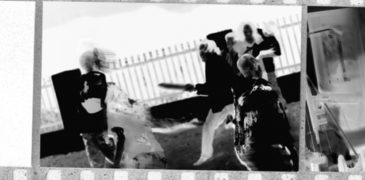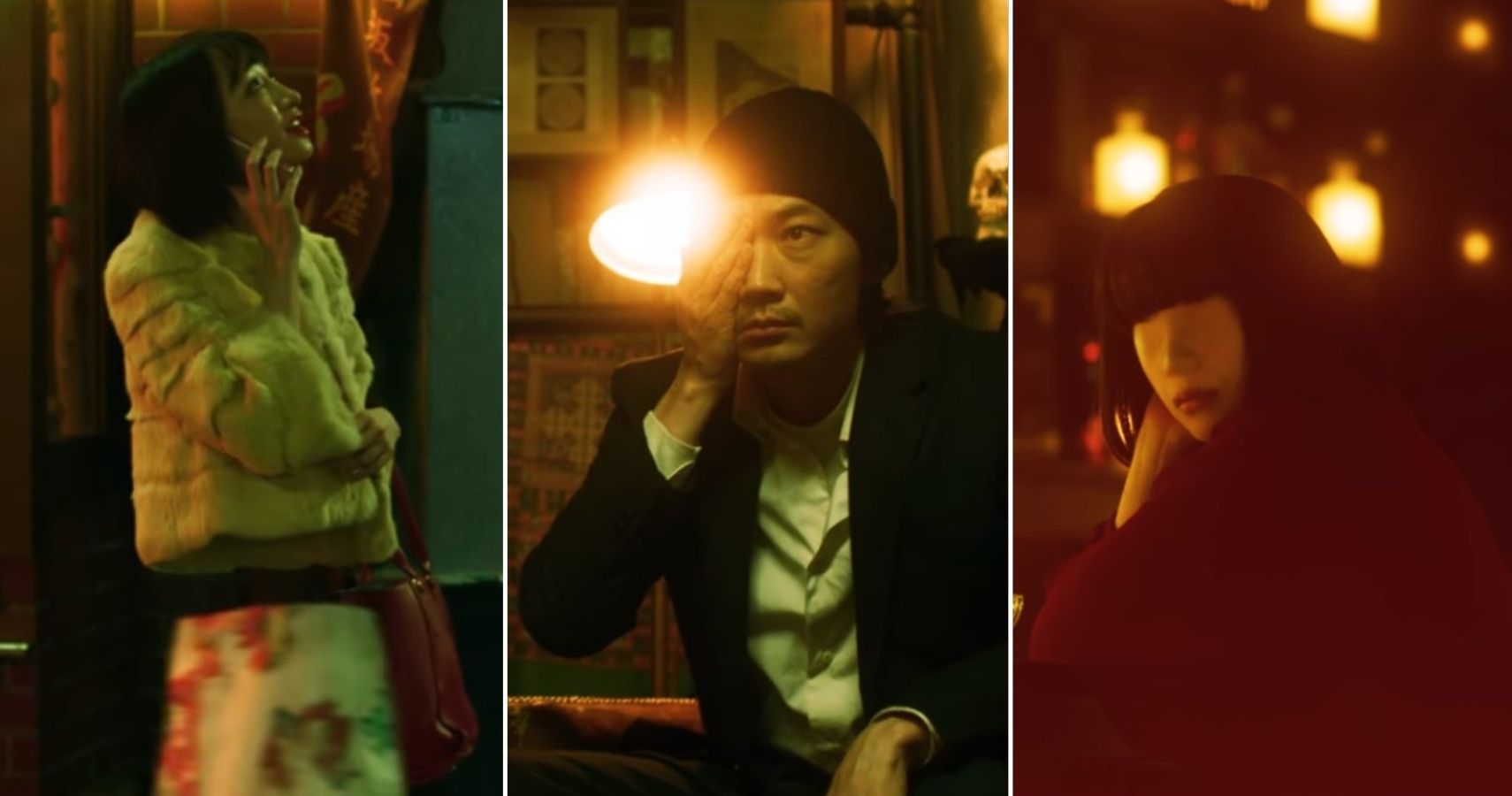
Susumu Nokoshi once worked for a top foreign financial company. He is now a 34-year-old homeless man, usually found around a park in Shinjuku. He then meets medical school student Manabu Ito, who is looking for volunteers to undergo a surgical procedure known as trepanation. The surgery involves drilling a hole in the skull. Susumu is not interested in having the surgery, but he agrees to have the procedure for 700,000 yen. After the operation, when Susumu closes his right eye and sees someone with his left eye, he sees people having a distorted appearance. Manabu tells him that the distorted appearance is a form of visualization from deep within the mind. Susumu communicates with people, who possess a dark side in their subconscious mind. (IMDB)
Homunculus has existed as a cult title for some time thanks to the manga by Hideo Yamamoto being championed through fan translations and word of mouth. On the other end, director Takashi Shimizu is a notable name in the horror genre having worked on the defining J-horror franchise Ju-on. Bringing these two together certainly marks an exciting prospect, but as fans of manga and Shimizu know the outcome is not always what the fandom desires. So how does Homunculus measure up? We asked three of our J-horror fanatics to weigh in on the recent Netflix original movie.

Production Quality
Oki: Fans of Japanese films, especially horror, are accustomed to low-quality productions, and very few of us are bothered by this as long as the overall film is good. With that said, it’s nice to see someone as established as Shimizu-san get the chance to work with a decent budget in his native language. The production quality is not ‘Hollywood’ level, which Shimizu has gotten a taste of twice, but it’s above average for sure, definitely in the same caliber as some of Japan’s more recent blockbusters.
Adam: The soundtrack! Oh my, I loved this score! I was seriously bopping along with the tunes. Overall the production is pretty sleek, maybe even to a fault as it makes the gritty reality of Susumu’s plight picturesque (looks great regardless). In addition, the CGI is praiseworthy and brings the world of Homunculus to life. Regardless of how one feels about the narrative the film is undeniably gorgeous to look at.
Quinn: I agree with a lot of what Adam said, the soundtrack nailed it. That opening song sucks you in, and it keeps working with a variety of moods deftly. The lighting was stylish, with a bright light often obscuring the side of a character’s face, or framing them with bright lights such as in the bar scenes. The lighting gave the film a unique identity in and of itself.
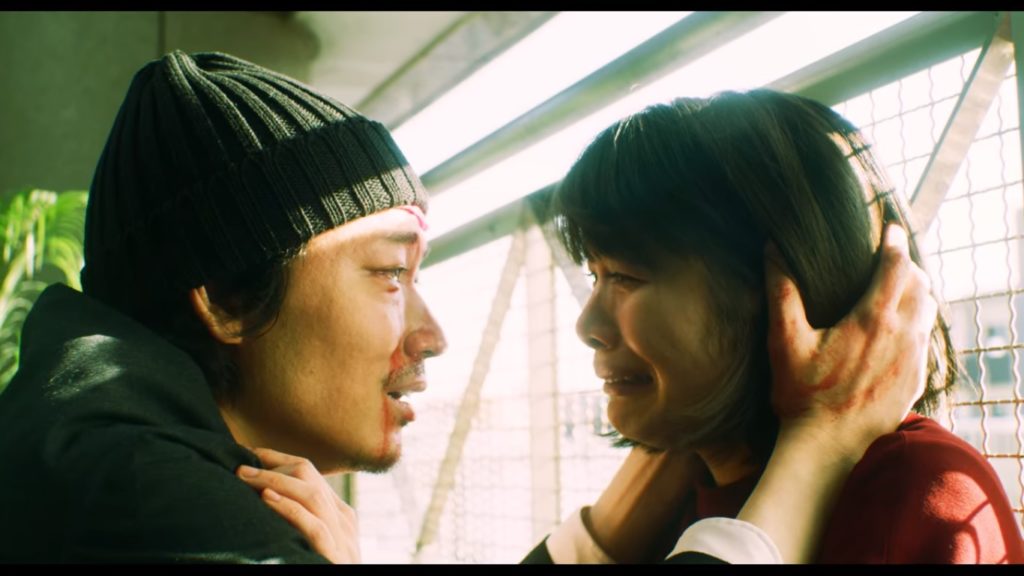
Story and Characters
Quinn: Homunculus is a slow-burn, psychological drama with dark themes. As Susumu encounters each person with a homunculus, he can help them work through their trauma and recover their normal form. I loved the concept of that, and as someone with PTSD, the idea resonated greatly with me.
Manabu’s character felt a little simplified for me, and I was hoping for a more complicated villain/ anti-villain, but given how many characters they were working with within two hours, I’ll give them credit. His style was well thought out. I also appreciated the effort they took with his work and after-hour transformations and his commitment to his look after hours. It’s something I can relate to as someone who is very into creative fashion. It gave us insight into his personality and need for attention, but also who he had crafted himself into being.
Oki: I went into this film almost blind; I’m familiar with the director’s previous work, of course, but I was unfamiliar with the manga this is based on, and I never got around to watching the trailer either. I found the overall story to be interesting; the idea of being able to see someone’s trauma manifested as some trippy-looking avatar made for some very cool visuals and it was a unique way to have some of the minor character backstories unfold. I wish we could have gotten more of this though; instead, the film shifts the attention to Susumu’s personal life, which was to be expected. It just felt like there was so much more to explore with this premise and I wonder if this adaptation would have worked better as a series. None of it felt rushed, I think a necessary amount of time was spent with each plot point but my greedy self wanted to delve into more character trauma; one character trauma and resolution in episodic format would have been fun!
Susumu’s story was investing enough; I initially didn’t find him all that interesting, to be honest, but I think that was the point. He was very stoic when we were first introduced to him, and it’s pointed out very early on that he rarely exhibits any emotions to his peers, so it was interesting to see him react to everyone else around him once he gained his new abilities. In terms of relatability, I think quite of number of people will resonate with Susumu. At some point in the film, I got the impression that there was a message of humans all relating to each other through our trauma, no matter how different we may seem on the surface, but this wasn’t fully explored either, and it may not have been intentional.
Adam: With the others summarizing the ‘story and characters’ so well, I am going to try to shift gears to cover the main difference from the manga to the film, spoiler-free. The biggest difference in the story comes from how the film concludes, and to that degree, the film is not as nihilistic and pessimistic as the manga, though certainly matches the dreary nature of the work for the majority of the runtime. The performances feel fully realized with Go Ayano and Ryo Narita capturing the mannerisms and eccentricities of their book counterparts. However, there are also a few notable changes to these characters that may be disliked by manga fans.
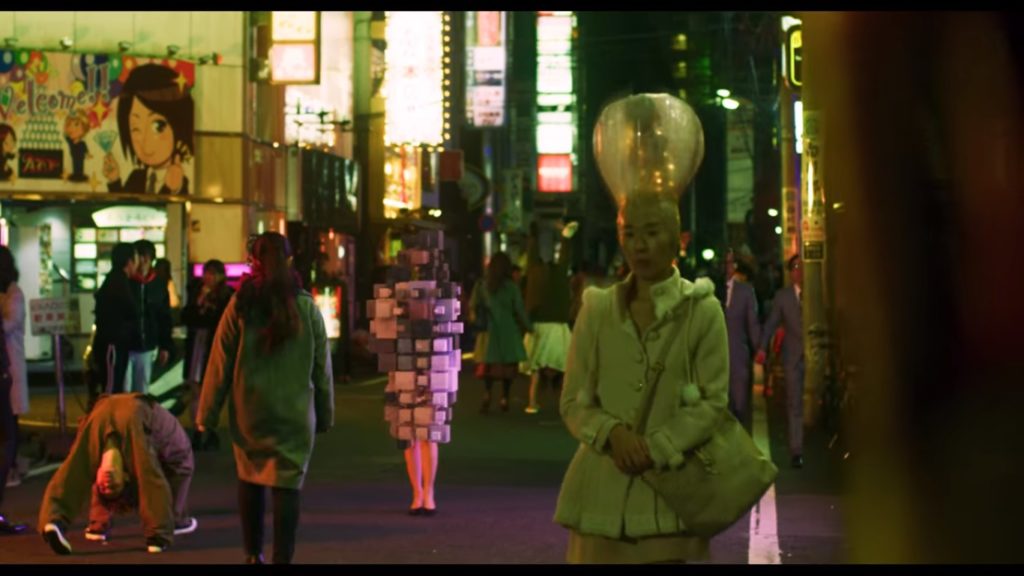
What to Love
Oki: The trauma avatars that Susumu begins to see; most of them just seem incredibly random or silly but once we’re shown the symbolic meaning behind the first homunculi, it becomes quickly apparent that the whacky designs are much more visceral than they appear. This is why I would have liked to see the story told in a series, I would have liked to see what some of the avatars we’re shown represent, like the man with dozens of sunglasses on his person or the woman with a lightbulb-looking headpiece. I’m interested to find out if we get more insight into these designs in the manga.
Adam: I do love the wording of ‘trauma avatars’ and agree with Oki in this being one of the film’s strongest attributes, albeit slightly underexplored. As I previously mentioned, both the score and the CGI are particularly praiseworthy.
It may be my fondness for the manga but certain scenes had a stronger emotional impact than I had expected. Whether all audiences will experience this I can’t say, but for me it tapped into some deep reflections on humanity that the manga had unabashedly explored.
Quinn: Each homunculus is visually impressive with a psychologically turned visual basis similar to Wonder Egg Priority or Madoka Magica. The CGI worked very well in this case, enhancing the live action in a necessary way for the story to work. After each homunculus encounter, I found myself very curious about what the next one would look like, and what the meaning would be. It was fun to try to interpret them and see how close or far off I was once the trauma was revealed.
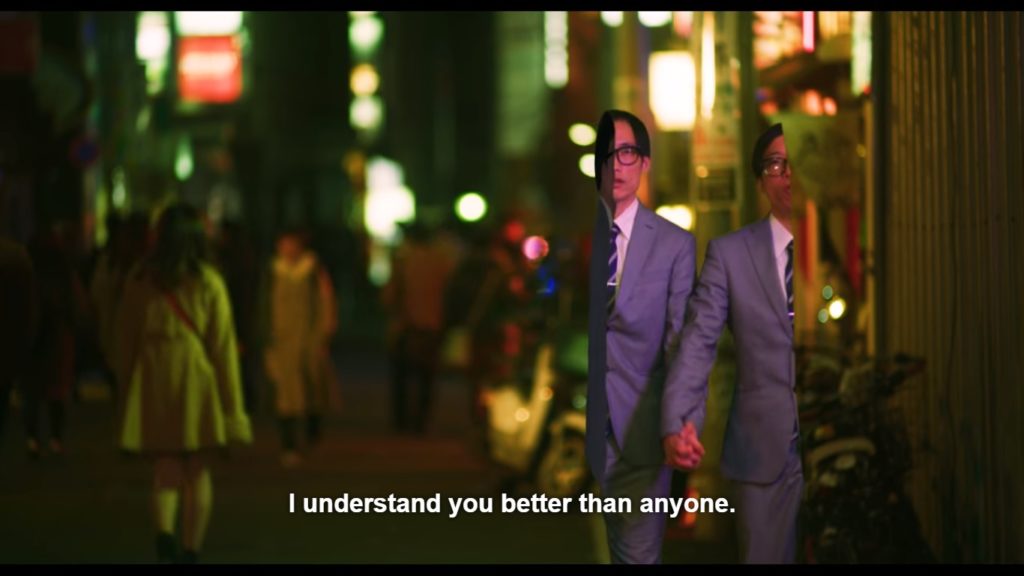
What Didn’t Work For Us
Quinn: The incredibly awkward sex scenes were not working for me. I will admit, I give them kudos in achieving “is that r*pe or not?” but really, why do that at all nowadays? By having the two very different perspectives and a homunculus involved, very different things were happening on each side. But just… no, please. I didn’t need that.
Also, while foreign films are less required to adhere to a single tone than American films are and very often are very successful for it, this film still gave me some tonal whiplash. It may have been missing necessary transitions and content from the manga, but I felt like they tried to get us to change our views on some characters too quickly, or switched between things in odd ways that left me less satisfied. I haven’t read the manga myself, but this made me want to read the source material to see what I “should have gotten” out of it.
Oki: I wasn’t too enthralled by the third act to be honest; our lead character does something that he really shouldn’t have been able to accomplish without proper training, and it bugged me the rest of the film. I’m not typically someone who nitpicks these sorts of things, as I am in the camp of people who believe that suspension of disbelief is the key to fully enjoying a work of fiction.
And to echo Quinn’s sentiments, I was also not a fan of the weird suggestive scene in the car with the young girl; I think if we were expected to believe that Susumu was using his new ability to help people with their trauma, they shouldn’t have had him commit an equally traumatic act, even if the result was “successful”. I think I understand what they were going for but I also think it was a poor choice.
Adam: It is hard not to deny that the film f***s up the manga in the conclusion, shifting the overall tone to something drastically different from the source. This does not make the movie a failure on its own, but as someone who enjoyed the bleak ending and troubled ruminations of the manga the film it was certainly missed in the adaptation.
As touched upon already, the ‘mind rape’ scene was uncomfortable and not in a great way. It was like that in the manga as well, but it matches the tone of the manga better with how it concludes. While this is true to the source, it is odd to keep this particular scene when opting to take liberties on far less controversial moments.
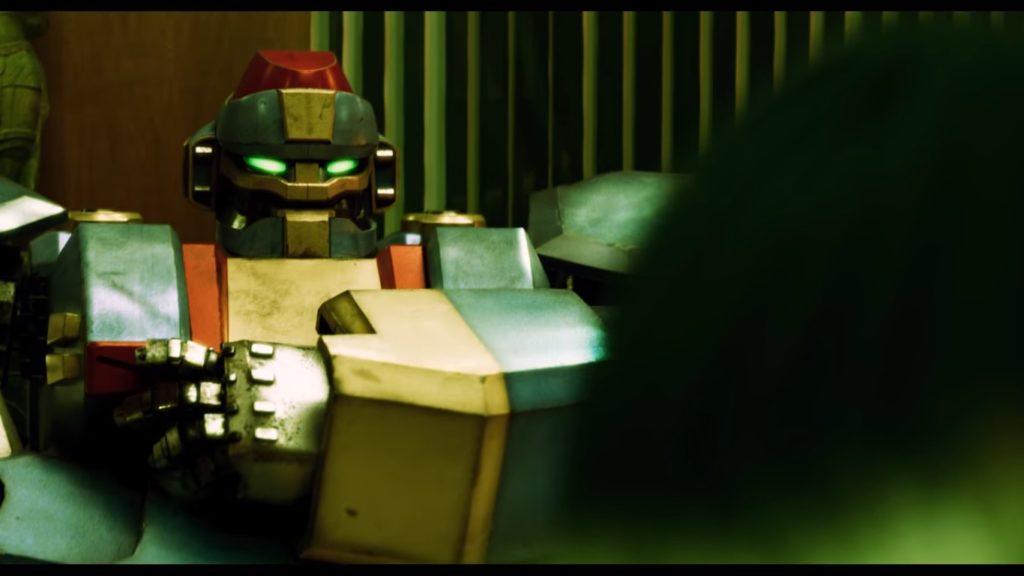
Final Verdict
Oki: Fascinating premise, solid performances, and some interesting visuals made for an entertaining watch, but the film was not exactly a home run for me. Worth checking out if you have an existing Netflix subscription and are interested in seeing what Takashi Shimizu is doing outside of his occasional horror flick. I don’t imagine I will revisit the film any time soon but it did compel me to look into the manga out of curiosity.
Adam: Even though the film messes up the ending, it stays largely truthful to the series and there is still a lot to love for fans coming to it from the manga. Separating myself from that, I still think Homunculus is a decent film, well acted, surreal CGI and gorgeously shot. I probably won’t ever revisit it, but I am really glad I checked it out. Ultimately, if this leads to more people checking out the manga from Hideo Yamamoto or we finally get a physical release. It is one of the best psychological series I have ever had the pleasure to read and if anything in the film resonates with you I implore you to give it a shot.
Quinn: I still can’t decide exactly how I feel about this film. I re-watched most of it a second time to grab screenshots, and more things stood out to me and I felt like I needed to give it more credit than I initially had. The acting is superb; the lighting, score, and overall look of the film shine. But something about the tone left me wanting, and I felt like there was simply something lacking. Since I have not read the manga, I attribute it to Adam’s description of the ending not sitting well, and missing some context or needed material. Still worth a watch for the premise alone, but it also encouraged me to check out the manga.
More Film Reviews:
In the Fall of 2022, the horror movie community got a jolt when the trailer for director Gerard Johnstone’s and screenwriter Akela Cooper’s sci-fi/horror film, M3GAN, dropped. The trailer’s… Director Koji Shiraishi takes a dip into cryptozoology in Senritsu Kaiki File Kowasugi! File 03: Legend of a Human-Eating Kappa (shortened to File 03). In this third installment in the… Part of the JFFH (Japan Film Fest Hamburg) 2021 line-up, Kenya Okuba’s Cosmetic DNA was a title that instantly caught my attention with the flashy trailer promising a techno-laden, neon-drenched… In the tradition of pseudo-local-TV broadcasts like Ghostwatch and WNUF Halloween Special, homegrown horror heads to N.Ireland in Dominic O’Neill’s Haunted Ulster Live. Set in 1998, TV newscaster Gerry Burns… The Guyver is a 1991 American live-action tokusatsu sci-fi horror, written by Jon Purdy, and directed by Screaming Mad George and Steve Wang. The film is an adaptation of the… The found-footage subgenre of horror is probably the most threadbare of its kind. The cinematic possibilities and the amount of legroom where a creative might pull a stunt out of…M3GAN (2022) Film Review – The Creepy, Dancing Doll that Captured our Hearts
Senritsu Kaiki File Kowasugi! File 03: Legend of a Human-Eating Kappa (2013) Film Review- Now it’s a cryptid!
Cosmetic DNA Film Review (2020) – Fashionable Androcide
Haunted Ulster Live (2023) Film Review – Tune In for Horrors Near You [Unnamed Footage Festival 7]
The Guyver (1991) Film Review – Early Western Anime Adaptation
Savageland (2015) Film Review – The Camera Doesn’t Lie
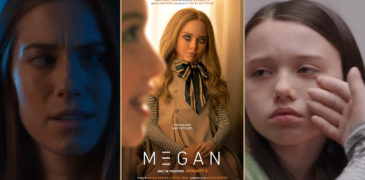
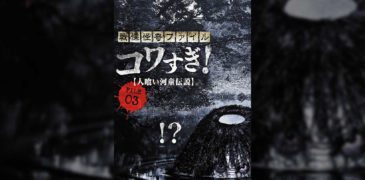

![Haunted Ulster Live (2023) Film Review – Tune In for Horrors Near You [Unnamed Footage Festival 7]](https://www.grimoireofhorror.com/wp-content/uploads/2024/03/Haunted-Ulster-Live-Title-Card-365x180.jpg)

